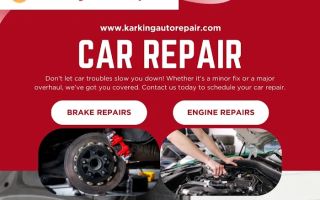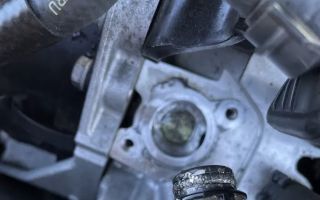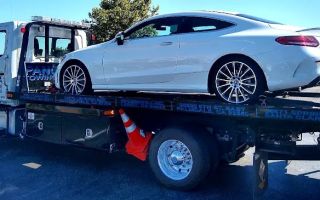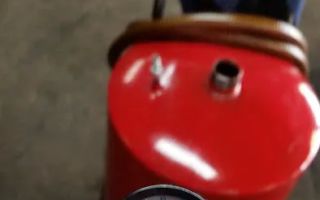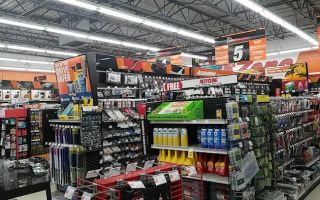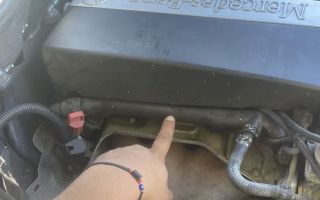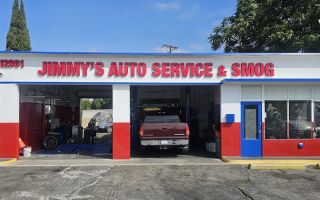Car Transmission Issues: How to Identify and Handle Them
As a car owner, there are few things more stressful than experiencing transmission issues. When my own car began to make strange noises while shifting gears, I had no idea what was happening, and the thought of expensive repairs loomed large. After doing some research and consulting with a mechanic, I learned that transmission problems are fairly common, and many can be resolved with early detection and proper care.
In this article, I’ll walk you through the various types of transmission issues, how to identify them early, and what steps you can take to prevent these issues from becoming major, costly repairs. Whether you’re experiencing slipping gears, trouble shifting, or unusual noises, understanding transmission problems can save you time, money, and stress.
1. Common Types of Car Transmission Issues
There are several types of transmission problems that can affect your vehicle. Each of these issues requires different solutions, and knowing which one you are dealing with can make a huge difference in how quickly and effectively it gets addressed. Let me share some of the most common transmission issues I encountered when troubleshooting my own car’s transmission:
- Slipping Gears: This is one of the most noticeable signs of transmission issues. If you find that your car unexpectedly changes gears or refuses to stay in gear, it could be a sign of transmission slippage. This issue is often caused by low transmission fluid levels or worn-out components.
- Delayed Shifting: If there’s a noticeable delay when you try to shift gears, or if the car seems to hesitate before it accelerates, this could indicate a problem with the transmission. In my case, this was due to a dirty transmission filter, which restricted the fluid flow.
- Grinding or Unusual Noises: Grinding noises when shifting gears or while driving are often caused by worn-out gears or insufficient transmission fluid. I experienced a persistent grinding noise in my car, which I later learned was due to a faulty clutch.
- Warning Lights: Most modern cars have a transmission warning light that will illuminate on your dashboard if there is a transmission problem. If you see this light, it's a sign that something is wrong, and it’s time to get your car checked.
- Burning Smell: If you smell something burning coming from the transmission, it could be a sign of overheating or burnt transmission fluid. This problem is often related to poor maintenance or a lack of proper fluid levels.
By identifying these symptoms early on, I was able to take proactive steps and avoid major damage to my vehicle. Remember, it’s always best to address transmission problems sooner rather than later to avoid further complications.
2. What Causes Transmission Issues?
Understanding the root causes of transmission problems can help you prevent them in the future. I quickly realized that transmission issues don't just happen out of nowhere—they are often a result of neglect or improper maintenance. Here are some of the most common causes:
- Low or Contaminated Transmission Fluid: This was the issue I encountered when my car’s gears started slipping. Transmission fluid is essential for lubricating and cooling the components in the transmission. If the fluid is low or contaminated, it can cause overheating and wear on the parts. Always check your transmission fluid regularly, especially if you notice any issues.
- Worn-Out Clutch: In manual transmissions, the clutch is crucial for shifting gears smoothly. Over time, the clutch can wear out, leading to issues with gear engagement. When my clutch started slipping, I realized it was time for a replacement.
- Old or Faulty Transmission Filter: A clogged transmission filter can restrict fluid flow, causing delayed shifting and overheating. I found that this was the case when my transmission started hesitating and shifting roughly.
- Overheating: Overheating is another common cause of transmission failure. If your car is constantly overheating or you’ve been driving in stop-and-go traffic, it can lead to transmission fluid breaking down. Ensuring that your cooling system is working properly can help prevent this.
- Poor Driving Habits: Hard acceleration, frequent gear-shifting, and towing heavy loads without proper equipment can all contribute to transmission wear and tear. I learned that avoiding unnecessary stress on the transmission could prolong its lifespan.
Taking care of your car’s transmission requires awareness and proactive maintenance. By identifying the causes of issues, I was able to make informed decisions on how to fix the problem and prevent it from happening again.
3. How to Diagnose Transmission Issues
Diagnosing transmission issues might seem like a daunting task, but with a little knowledge, you can assess the problem and decide whether it requires professional intervention. When my car’s transmission started acting up, I performed a few simple checks that helped me identify the issue:
- Check the Fluid Level: The first thing I did was check the transmission fluid. Low fluid levels can cause slipping gears and other issues, so I made sure to top it off if needed. Make sure to check your fluid while the engine is running, as this gives the most accurate reading.
- Listen for Unusual Noises: I paid close attention to any unusual sounds, like grinding or whining, which could indicate problems with the transmission. If the sounds persisted even after I checked the fluid, I knew it was time to take the car in for a professional inspection.
- Look for Warning Lights: If your car has a check engine or transmission warning light, don’t ignore it. I learned the hard way that ignoring these signals can lead to costly repairs. When the light came on, I had it checked by a mechanic who confirmed that the issue was transmission-related.
- Perform a Test Drive: When my car was showing signs of delayed shifting, I decided to take it for a short test drive. I tested the gears, paying attention to how they engaged and if there were any noticeable hesitations or shifts. This helped me describe the problem more clearly to the mechanic.
If you notice any of these symptoms or your car isn’t behaving as usual, it’s best to have it inspected by a mechanic. Catching the problem early can save you from more serious damage and costly repairs down the line.
4. When to Seek Professional Help for Transmission Issues
While some minor transmission problems can be addressed with simple DIY fixes, there are times when it’s crucial to seek professional help. If your transmission is slipping, you hear grinding noises, or the car won’t engage in gear, don’t hesitate to visit a mechanic. I found that, in my case, the issue was more complicated than just low fluid levels, and I needed to have the transmission repaired by a professional.
For major transmission issues, it’s often necessary to have the entire unit rebuilt or replaced. This is a costly process, but the long-term benefits of getting your transmission working properly are well worth it. I had to make this tough decision once, and it saved me from future headaches. A professional mechanic can give you an accurate diagnosis and recommend the best solution for your car.
If you need assistance with towing your car to a shop for repairs, don’t hesitate to call a reliable towing service. I used Rescue & Towing to get my car to the shop when the transmission issue left me stranded, and their service was fast and reliable.
5. Preventing Future Transmission Issues
Once my car’s transmission was repaired, I learned that preventing future issues is just as important as fixing current problems. Regular maintenance is key to extending the life of your transmission. Here are some steps I took to keep my car’s transmission in good shape:
- Regular Fluid Checks: I now make it a point to check my transmission fluid every few months to ensure it’s at the correct level and free from contamination.
- Scheduled Maintenance: I follow my car’s maintenance schedule and take it to a trusted mechanic for periodic inspections, including checks for the transmission and other essential systems.
- Drive Mindfully: I avoid harsh accelerations and heavy towing unless my car is equipped for it. Taking it easy on the transmission can help prevent unnecessary wear.
By taking these precautions, I’ve been able to keep my transmission running smoothly, preventing costly repairs in the future.

